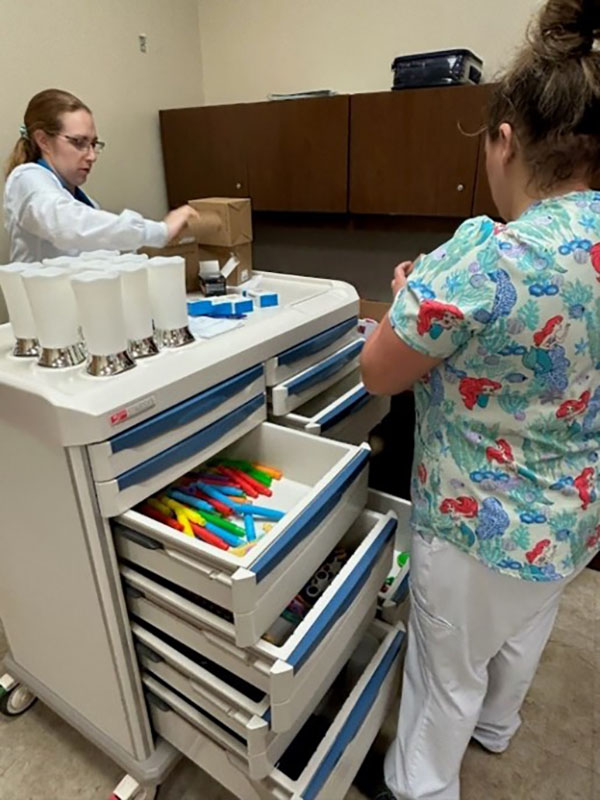The Waiting Is the Hardest Part

Hospitals — particularly emergency departments (EDs) — can be loud and anxiety-producing for anyone but even more so for people with neurodiversities, such as autism and attention-deficit/hyperactivity disorder (ADHD).
Recognizing this, Lori Matich, MSN, RN, Senior Director of Nursing at Cleveland Clinic Tradition Hospital and Maternal Child Services, took the initiative to submit a convincing proposal to Cleveland Clinic’s Catalyst Grants program. Her winning idea — for which she and her team were awarded nearly $30,000 — was to make sensory tools and resources readily available to caregivers and their patients via a fleet of sensory carts.
“The sensory carts are portable units that contain various sensory tools and materials, such as weighted lap pads, fidget toys, noise-canceling headphones, picture cards and calming lights,” says Lori. The carts enable caregivers to provide sensory integration therapy, a type of intervention that helps patients with neurodiversities regulate their sensory input and cope with sensory overload.
Lori credits her colleagues for the idea. “It was really my fellow caregivers who expressed the need for education and tools to provide more inclusive care for our patients with neurodiversities in our EDs, ambulatory offices and inpatient areas,” says Lori. “We currently have eight carts that can be used in different settings, such as waiting rooms, exam rooms or any area where patient care is provided.”
Five virtual caregiver educational sessions were offered this summer, hosted by Travis Haycook, MEd, Assistant Director of the Cleveland Clinic Center for Autism. The team is working on deploying the carts to the pediatric unit at Tradition Hospital, four EDs and each of the three pediatric ambulatory offices within Cleveland Clinic in St. Lucie and Martin counties.
“We've put together a great team to work on this project, and it’s about more than carts,” says Lori. “We identified how we could do better caring for patients and help our caregivers feel more comfortable caring for patients. There is a huge population who will really benefit from this.”
Catalyst Grants are funded annually by thousands of gifts of all sizes from donors. The competitive grants are awarded to caregivers with ideas to improve the lives of Cleveland Clinic patients, the organization and communities around the world.
“We are so grateful,” says Lori. “Because of this generous grant, we are able to provide a more comfortable, inclusive and supportive environment for patients with neurodiversities.”
100% of your donation to our Catalyst Grants program has an immediate impact by giving Cleveland Clinic employees the resources they need to bring novel, innovative ideas to life quickly. Learn more about our Catalyst Grant program here.

